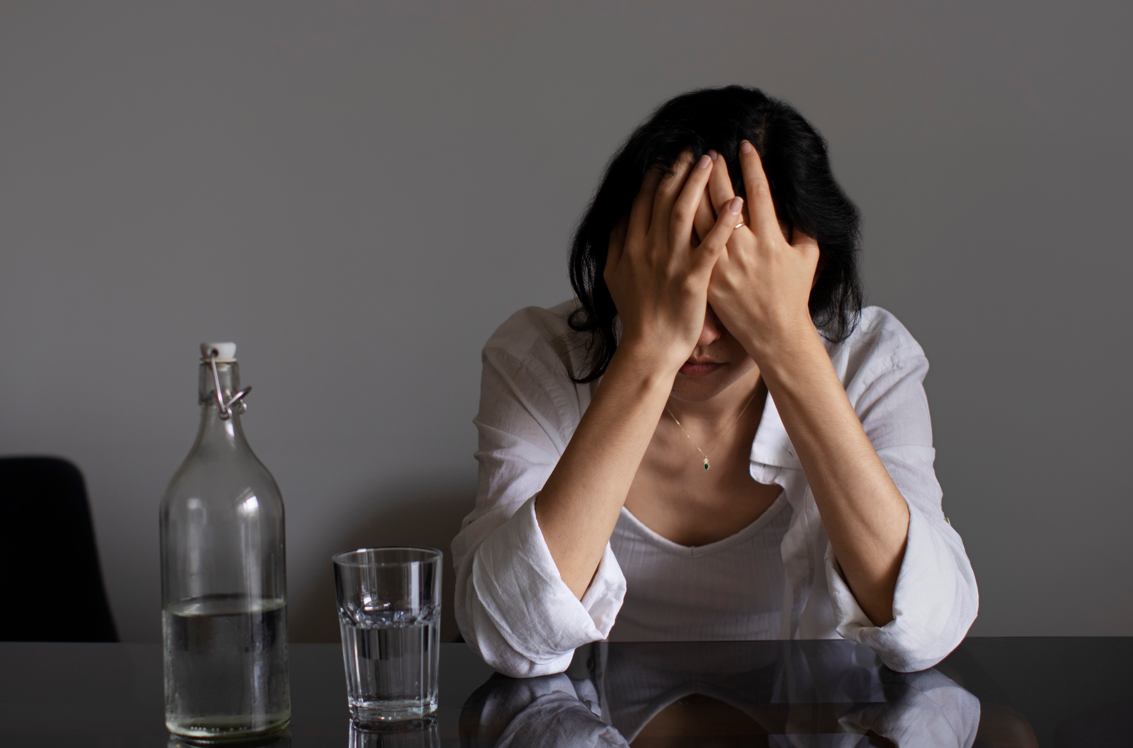Understanding Social Media Addiction
Social media has revolutionized the way we communicate, connect, and share information. While it has many benefits, such as staying in touch with loved ones, promoting businesses, and raising awareness on important issues, it also has a dark side: addiction.
What is Social Media Addiction?

Social media addiction is a behavioral addiction, which means it involves the same brain mechanisms as substance addiction, such as drugs or alcohol. It is a form of psychological dependence on social media platforms, which triggers the release of dopamine, a neurotransmitter that regulates pleasure and reward.
Symptoms of Social Media Addiction
Social media addiction can take many forms, but some common symptoms include:
- Spending excessive amounts of time on social media, often at the expense of other activities or responsibilities.
- Feeling anxious, irritable, or depressed when unable to access social media or use it as much as desired.
- Neglecting personal or professional relationships because of social media use.
- Developing physical symptoms, such as eye strain, headaches, or neck pain, from prolonged screen time.
- Experiencing a decline in academic or work performance due to distraction or procrastination on social media.
- Losing interest in hobbies or activities that were once enjoyable because of social media.
Causes of Social Media Addiction
Social media addiction can be caused by a combination of psychological, social, and environmental factors, such as:
- Loneliness or social isolation, which can make people turn to social media as a way to connect with others.
- Low self-esteem or self-worth, which can lead people to seek validation and approval from social media.
- Boredom or lack of stimulation, which can make people turn to social media as a source of entertainment or distraction.
- Fear of missing out (FOMO), which can make people feel compelled to check social media constantly to avoid feeling left out or uninformed.
- Easy access to social media, which can make it difficult to resist the temptation to use it.
Effects of Social Media Addiction
Social media addiction can have a range of negative effects on mental, emotional, and physical health, such as:
- Increased anxiety, depression, or stress due to the pressure to maintain a perfect image or keep up with others.
- Impaired sleep quality or quantity due to late-night scrolling or notifications.
- Reduced face-to-face communication skills or empathy due to over-reliance on virtual interactions.
- Decreased productivity or creativity due to distraction or procrastination on social media.
- Increased risk of cyberbullying, online harassment, or exposure to harmful content.
- Physical health problems, such as obesity, sedentary lifestyle, or eye strain.
Overcoming Social Media Addiction
Overcoming social media addiction requires a combination of self-awareness, self-discipline, and support from others. Here are some practical tips to help you break free from social media addiction:
- Set clear goals and limits for your social media use, such as checking it only at certain times of the day or for a limited amount of time.
- Use apps or tools that can help you monitor or control your social media use, such as timers, blockers, or alerts.
- Find alternative activities or hobbies that can replace social media, such as reading, exercising, or socializing in person.
- Practice mindfulness or meditation to help you become more aware of your thoughts and feelings around social media.
- Seek professional help if you are struggling with mental health issues, such as anxiety, depression, or addiction.
- Surround yourself with supportive and understanding people who can help you stay accountable and motivated.
The Impact of Social Media Addiction on Personal Relationships
One of the most significant negative effects of social media addiction is its impact on personal relationships. People who are addicted to social media often neglect their real-life relationships, both romantic and platonic, in favor of virtual ones.
They may spend hours scrolling through feeds, liking and commenting on posts, and messaging with online friends, while ignoring calls or texts from their partners or friends.
This can lead to feelings of resentment, jealousy, or loneliness in the neglected party, which can strain the relationship over time. Moreover, social media addiction can erode trust and intimacy between partners by creating opportunities for infidelity or secrecy.
For example, a person may use social media to flirt with someone else or hide their true thoughts and feelings from their partner.
In addition to romantic relationships, social media addiction can also affect family dynamics and friendships. A person who is always glued to their phone during family dinners or outings may miss out on meaningful conversations or experiences with loved ones.
Similarly, a person who cancels plans with friends at the last minute because they’d rather stay home and scroll through Instagram may damage those friendships.
To avoid these negative consequences, it’s essential for people struggling with social media addiction to recognize how it affects their personal relationships and take steps to address it.
This might involve setting boundaries around social media use during specific times or activities (e.g., no phones at dinner), prioritizing face-to-face interactions over virtual ones whenever possible, seeking couples or family therapy if necessary, and being honest with loved ones about struggles with addiction.
By taking these steps and working together as a team with their partners/friends/family members instead of against them due to addiction issues; individuals can start rebuilding trust and intimacy in personal relationships that were once lost due to excessive use of social media platforms.
The Connection Between Mental Health and Social Media Addiction
Social media addiction has been linked to a variety of mental health issues, including anxiety, depression, and low self-esteem. People who use social media excessively may feel pressure to maintain a perfect image or keep up with others, which can lead to feelings of inadequacy or inferiority.
Moreover, social media addiction can exacerbate existing mental health conditions by creating a cycle of negative thoughts and emotions.
For example, someone with anxiety may check their social media constantly to avoid feeling left out or uninformed; however, this constant checking can actually increase their anxiety by exposing them to triggering content or situations.
Furthermore, social media addiction can also interfere with healthy coping mechanisms for stress or emotional regulation. Instead of seeking support from loved ones or engaging in self-care activities, a person may turn to social media as a way to distract themselves from negative emotions or seek validation from others.
It’s important for individuals struggling with mental health issues and social media addiction to seek professional help. A mental health provider can help them develop healthier coping strategies for managing stress and negative emotions while also addressing the underlying causes of their addiction.
In some cases, medication or therapy may be necessary to manage symptoms effectively.
By recognizing the connection between mental health and social media addiction and taking steps to address both issues simultaneously, individuals can improve their overall well-being and quality of life.
Strategies for Limiting Social Media Use without Going Cold Turkey
For some people, quitting social media altogether may not be feasible or desirable. However, they still want to reduce their dependency on it and regain control over their time and attention. Here are some strategies that can help limit social media use without going cold turkey:
- Set specific times for checking social media, such as before or after work/school, during breaks or lunchtime, or in the evening.
- Use a timer to limit the amount of time spent on each social media platform per day (e.g., 30 minutes on Facebook, 15 minutes on Instagram).
- Turn off notifications for social media apps to avoid constant interruptions and distractions.
- Unfollow or mute accounts that trigger negative emotions or thoughts (e.g., celebrities who promote unrealistic beauty standards, news outlets that focus on negative events).
- Use alternative apps or websites that offer similar features but with less emphasis on likes, comments, or followers (e.g., Vero, Ello).
- Engage in activities that require focus and concentration, such as reading a book, doing a puzzle, or playing an instrument.
- Spend more time outdoors or in nature to reduce screen time and boost mood and creativity.
- Seek support from friends/family members who understand your struggles with social media addiction and can hold you accountable.
By implementing these strategies gradually and consistently over time, individuals can break the cycle of compulsive social media use and develop healthier habits around technology.
How to Talk to Someone You Suspect Has a Social Media Addiction
If you suspect that someone you know has a social media addiction, it’s important to approach the topic with sensitivity and empathy. Here are some tips for having an honest and productive conversation:
- Choose the right time and place: Find a private and comfortable setting where both of you can talk without distractions or interruptions. Avoid bringing up the topic when the person is already stressed, tired, or in a bad mood.
- Express your concerns: Start by expressing your genuine concern for their well-being and how you’ve noticed changes in their behavior or mood since they started using social media excessively.
- Listen actively: Allow the person to express their thoughts and feelings about their social media use without judgment or criticism. Ask open-ended questions that encourage them to reflect on their behavior and its impact on their life.
- Offer support: Let the person know that you’re there for them and willing to help in any way possible. Suggest healthy alternatives or activities that could replace some of their social media time, such as going for a walk together, trying a new hobby, or taking a class.
- Avoid blaming or shaming: Remember that addiction is a complex issue that involves many factors beyond personal choice or willpower. Avoid blaming or shaming the person for their behavior but instead focus on finding solutions together.
- Encourage professional help: If necessary, encourage the person to seek professional help from a mental health provider who specializes in addiction treatment. Offer to accompany them to appointments if needed.
By approaching the topic of social media addiction with compassion and understanding, you can help someone take the first step towards recovery and improve their overall well-being.
Preventing Social Media Addiction in Schools and Workplaces
Schools and workplaces can play a crucial role in preventing social media addiction by promoting healthy habits and providing alternative forms of stimulation. Here are some ways that schools and workplaces can help prevent social media addiction:
- Educate students or employees about the risks of excessive social media use and how to recognize the signs of addiction.
- Encourage breaks or activities that promote physical activity, such as stretching, walking, or group exercise classes.
- Provide access to mental health resources, such as counseling or therapy, for students/employees who may be struggling with addiction or other mental health issues.
- Offer workshops or training on time management and productivity skills to help students/employees prioritize their tasks and avoid procrastination on social media.
- Create a culture of accountability and support by encouraging open communication between peers, teachers/professors, managers/supervisors, and HR representatives.
- Implement policies that limit social media use during class/work hours, such as blocking certain websites/applications or requiring devices to be turned off during meetings/presentations.
- Foster an environment that promotes face-to-face communication and collaboration instead of relying solely on virtual interactions. Encouraging team-building activities like outings can also help.
By taking these proactive steps, schools and workplaces can help prevent social media addiction among their students/employees while also promoting overall well-being.
FAQs
What is social media addiction?
Social media addiction refers to a pattern of excessive or compulsive use of social media platforms, such as Facebook, Twitter, Instagram, or TikTok.
People who are addicted to social media may spend hours each day scrolling through feeds, posting updates, liking and commenting on posts, or messaging with online friends.
How common is social media addiction?
Social media addiction is becoming increasingly common in today’s digital age. According to a survey by the Pew Research Center, about 69% of adults in the United States use at least one social media platform regularly. Among young adults aged 18-29, this figure rises to 88%.
While not everyone who uses social media is addicted to it, studies suggest that between 5-10% of users may have a genuine addiction.
What are the warning signs of social media addiction?
Some common warning signs of social media addiction include:
- Spending more time on social media than intended
- Feeling restless or irritable when unable to access social media
- Neglecting real-life responsibilities or relationships due to excessive use of social media
- Experiencing withdrawal symptoms when not using social media (e.g., anxiety, depression, insomnia)
- Using social media as a way to escape negative emotions or stress
- Lying or hiding the extent of one’s social media use from others
Can social media addiction be treated?
Yes, like any other addiction, social media addiction can be treated with therapy and/or medication. Cognitive-behavioral therapy (CBT) has been shown to be effective in helping people overcome addictive behaviors by identifying and changing negative thought patterns and behaviors.
In some cases, medication may also be prescribed to help manage underlying mental health conditions that contribute to the addiction.
Is it possible to use social media without becoming addicted?
Yes! Social media itself is not inherently addictive; it’s the way people use it that can lead to addiction. By setting clear goals and limits for one’s social media use, practicing mindfulness and self-awareness, and finding alternative activities or hobbies that bring joy and fulfillment, it is possible to use social media in a healthy and balanced way.
Conclusion
Social media addiction is a complex and widespread problem that affects many people of all ages and backgrounds. While social media has many benefits, it is important to recognize the risks and consequences of excessive use and take steps to overcome addiction.
By understanding the causes and symptoms of social media addiction and adopting practical strategies to manage it, we can reclaim our time, energy, and well-being.











